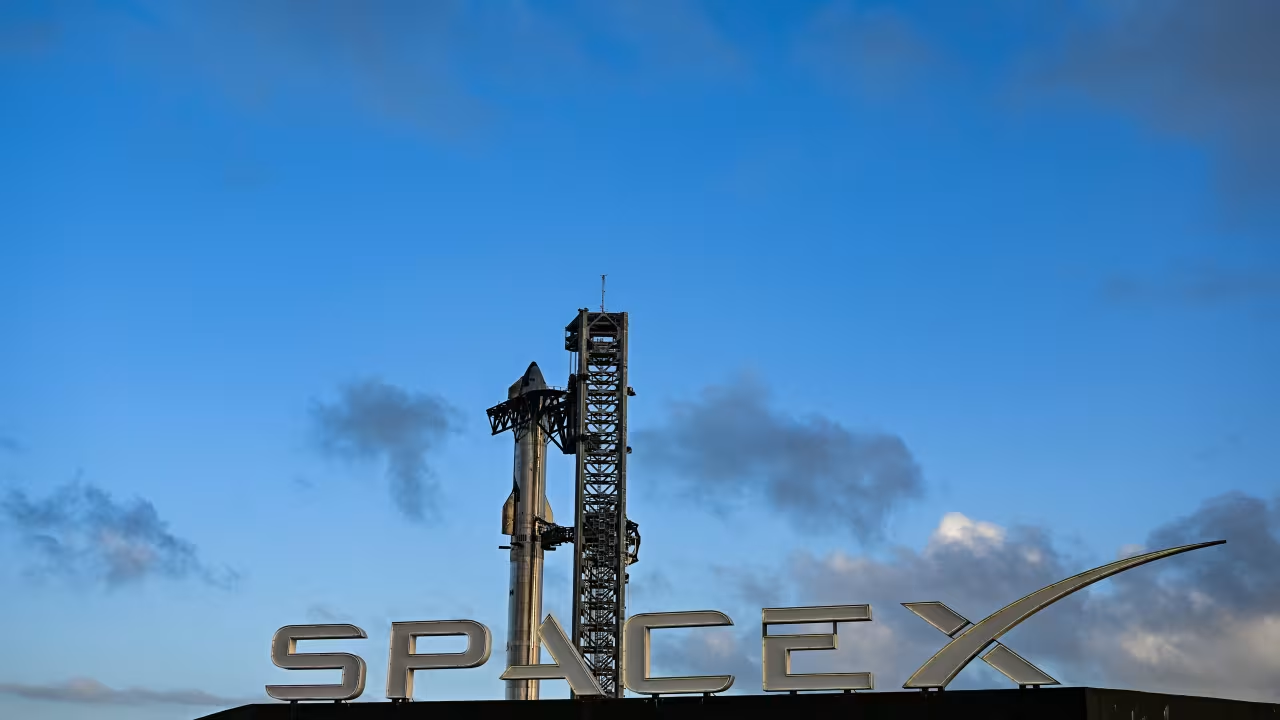- The transaction includes a long-term commercial agreement enabling Boost Mobile subscribers to access Starlink’s direct-to-cell service.
- With exclusive access to spectrum, SpaceX expects to increase Starlink’s capacity by “more than 100 times”, aiming to eliminate mobile dead zones.
What happened: SpaceX strikes $17 billion spectrum deal to power direct-to-cell expansion
Elon Musk’s SpaceX has agreed to pay approximately $17 billion to EchoStar for its AWS-4 and H-block wireless spectrum licences. The payment is structured as $8.5 billion in cash, up to $8.5 billion in SpaceX stock, and includes taking over about $2 billion in interest payments on EchoStar’s debt through late 2027.
The deal also includes a commercial partnership that will allow Boost Mobile customers to access Starlink’s Direct-to-Cell service, extending satellite-based connectivity directly to standard mobile devices.
According to Gwynne Shotwell, SpaceX’s president and COO, the exclusive spectrum will help develop next-generation Starlink Direct-to-Cell satellites and “end mobile dead zones around the world,” increasing network capacity by “more than 100 times” .
Also read: Airtel partners with SpaceX to bring Starlink to India
Also read: One NZ reaches 2M satellite messages milestone with SpaceX
Why it’s important
This agreement marks a profound shift for Starlink’s business model—from solely internet-to-home services towards satellite-to-cellular connectivity, potentially bypassing terrestrial networks entirely. Starlink’s ability to serve mobile users in truly remote or underserved areas could significantly expand global connectivity.
EchoStar, meanwhile, may use part of the proceeds to reduce debt and maintain its services—including Dish TV, Sling, Hughes, and Boost Mobile—while resolving longstanding FCC concerns over spectrum under-utilisation.
This move also shaves pressure off EchoStar’s regulatory risks: the Federal Communications Commission had been probing the company for not deploying 5G services as required, with criticism from SpaceX itself accusing EchoStar of “warehousing” valuable spectrum.
According to BTW Media, beyond resolving regulatory hurdles, this deal hints at SpaceX’s ambitions to become a backbone for mobile service, not just via wholesale partnerships (e.g., with T-Mobile) but potentially as a full-fledged mobile operator using its own frequencies. SpaceX thus positions itself at the forefront of the nascent satellite-to-cellular revolution, one that could rival traditional telecom giants in reach if regulatory and technological paths clear. Moreover, given the record-breaking surge in mobile data usage in the U.S.—132 trillion megabytes in 2024, up 35 per cent year-on-year—SpaceX is striking while demand is accelerating, aiming both to influence spectrum policy and capitalise on unmet network needs.

